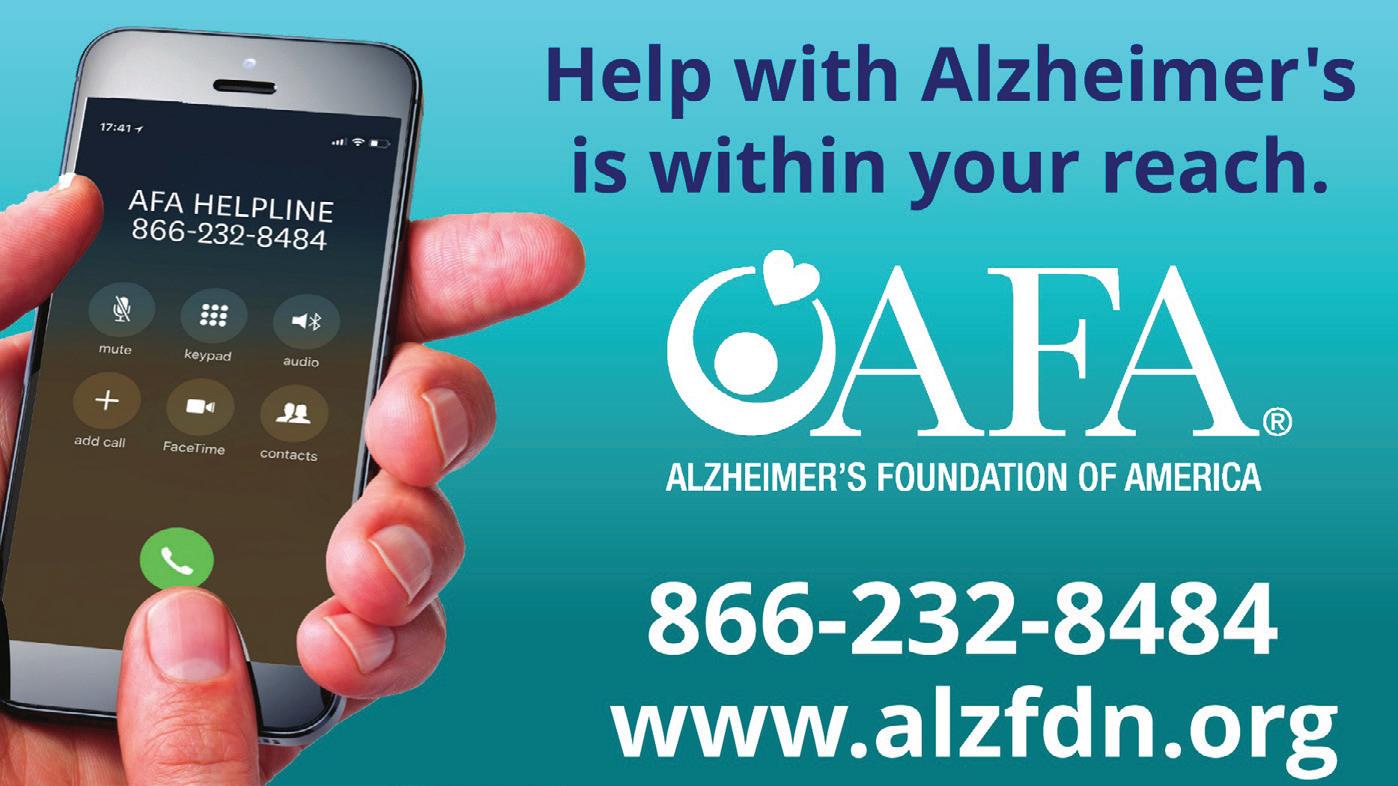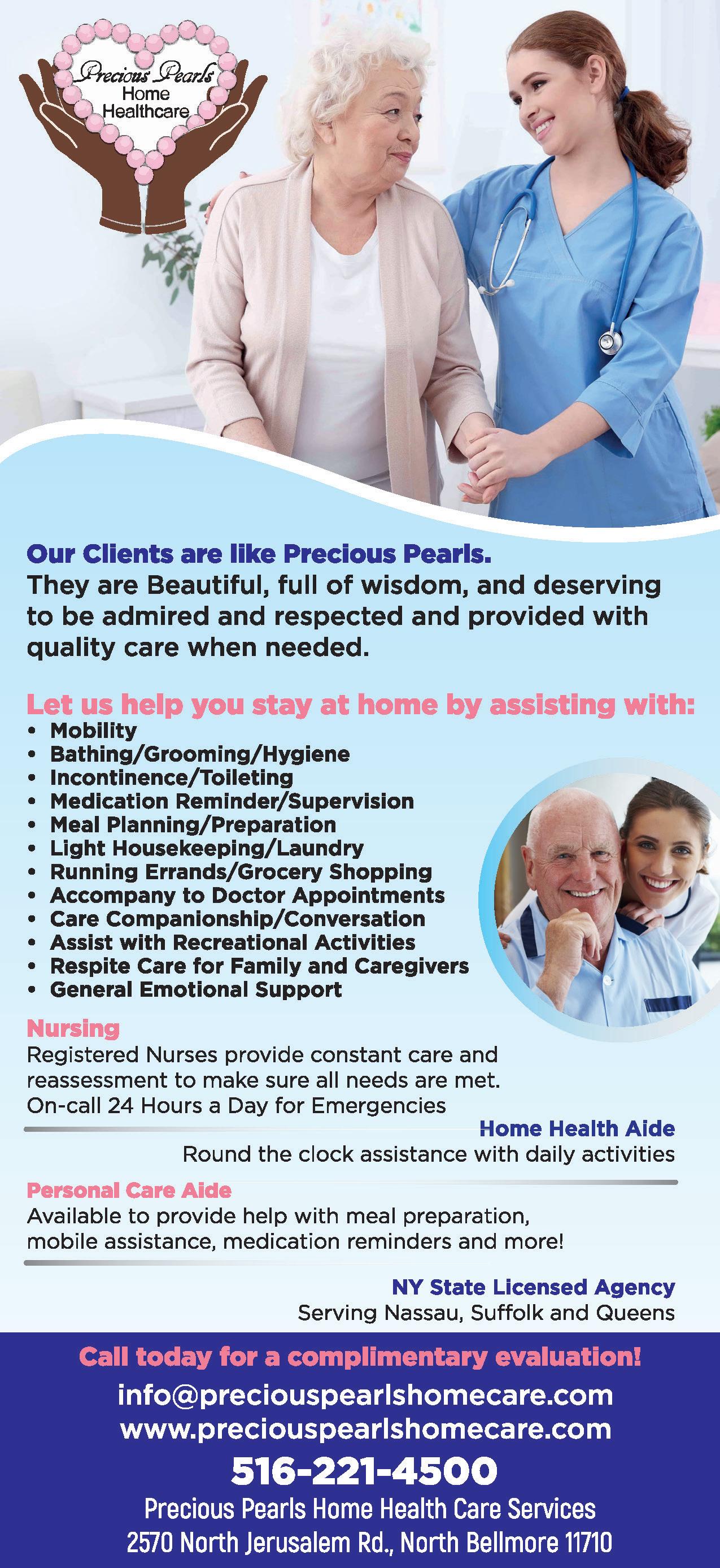
2 minute read
November is Alzheimer’s Awareness Month - Here Are Four Things to Remember
from Your NewsMag
Here Are Four Things to Remember About Alzheimer's
The Alzheimer’s Foundation of America (AFA) is encouraging people to remember four important things about Alzheimer’s disease during Alzheimer’s Awareness Month.
Advertisement
“Raising awareness starts from within,” said Charles J. Fuschillo, Jr., AFA’s president & CEO. “As we work together to educate others about Alzheimer’s disease throughout No - vember, there are things everyone should be aware of, regardless of whether Alzheimer’s is in their lives.”
Alzheimer’s is NOT part of normal aging. Alzheimer’s disease and normal aging are not the same thing. Alzheimer’s is a progressive, degenerative brain disorder that impacts memory, thinking and language skills, and the ability to carry out the simplest tasks. More than 5.8 million Americans live with Alzheimer’s now, and the Centers for Disease Control and Prevention (CDC) estimates that number could grow to 14 million by 2060.
Don’t stay silent about memory concerns. Like with most other medical conditions, early detection of Alzheimer’s is important: it affords the person the opportunity to start medications sooner, which can potentially help slow the disease progression, enroll in a clinical trial, begin therapeutic programming and have a more active role in making medi - cal, financial and legal decisions. When someone begins to exhibit warning signs of Alzheimer’s, such as repeatedly getting lost going to familiar places, regularly forgetting the names of relatives or friends, or struggling to complete routine tasks, don’t simply attri - bute it to the person “getting old.” Have a conversation about it and encourage the person to see a physician.
Help and support are available. Whether you’re experiencing symptoms, living with
Alzheimer’s, caring for someone who is, or just have questions about Alzheimer’s or memory concerns, get connected with help. The AFA Helpline is open seven days a week and staffed entirely by licensed social workers trained in dementia care. They are available by phone at 866-232-8484 or through the internet at www.alzfdn.org.
Lifestyle choices can reduce your Alzheimer’s risk. While the cause of Alzheimer’s is unknown, there are ways to help lower your risk for developing the disease. Proper diet, regular exercise, being socially active, cognitive stimulation, avoiding tobacco and limit- ing alcohol intake all play a role in promoting good brain health. Be proactive!
Individuals looking to learn more about Alzheimer’s disease, caregiving resources or supporting the fight against Alzheimer’s can visit www.alzfdn.org.

About Alzheimer’s Foundation of America (AFA):
The Alzheimer’s Foundation of America is a non-profit organization whose mission is to provide support, services and education to individuals, families and caregivers affected by Alzheimer’s disease and related dementias nationwide, and fund research for better treatment and a cure. Its services include a National Toll-Free Helpline (866-232-8484) staffed by licensed social workers, the Nation - al Memory Screening Program, educational conferences and materials, and “AFA Partners in Care” dementia care training for healthcare professionals. For more information about AFA, call 866-232-8484, visit www.alzfdn.org, follow us on Twitter, or connect with us on Facebook or LinkedIn. AFA has earned Charity Navigator’s top 4-star rating for five con- secutive years.











